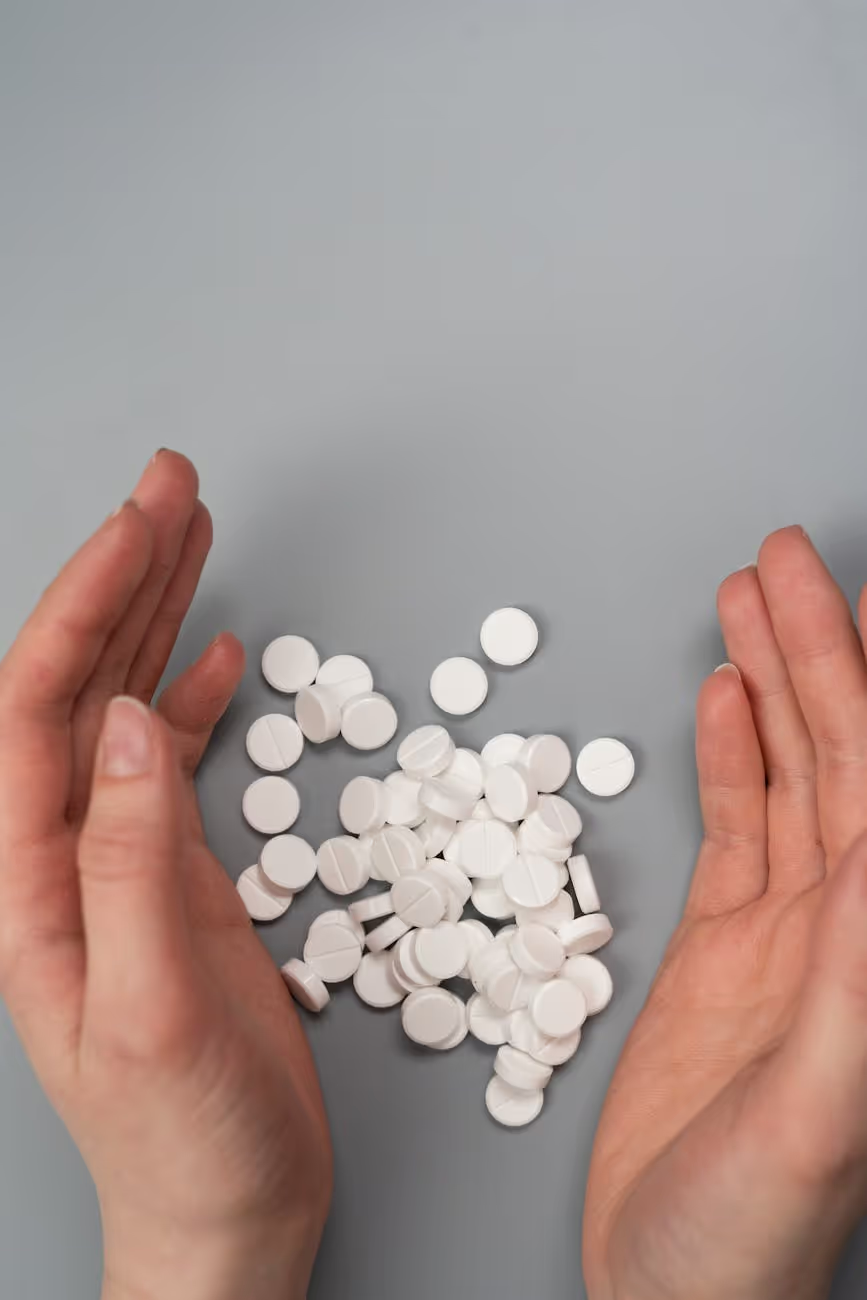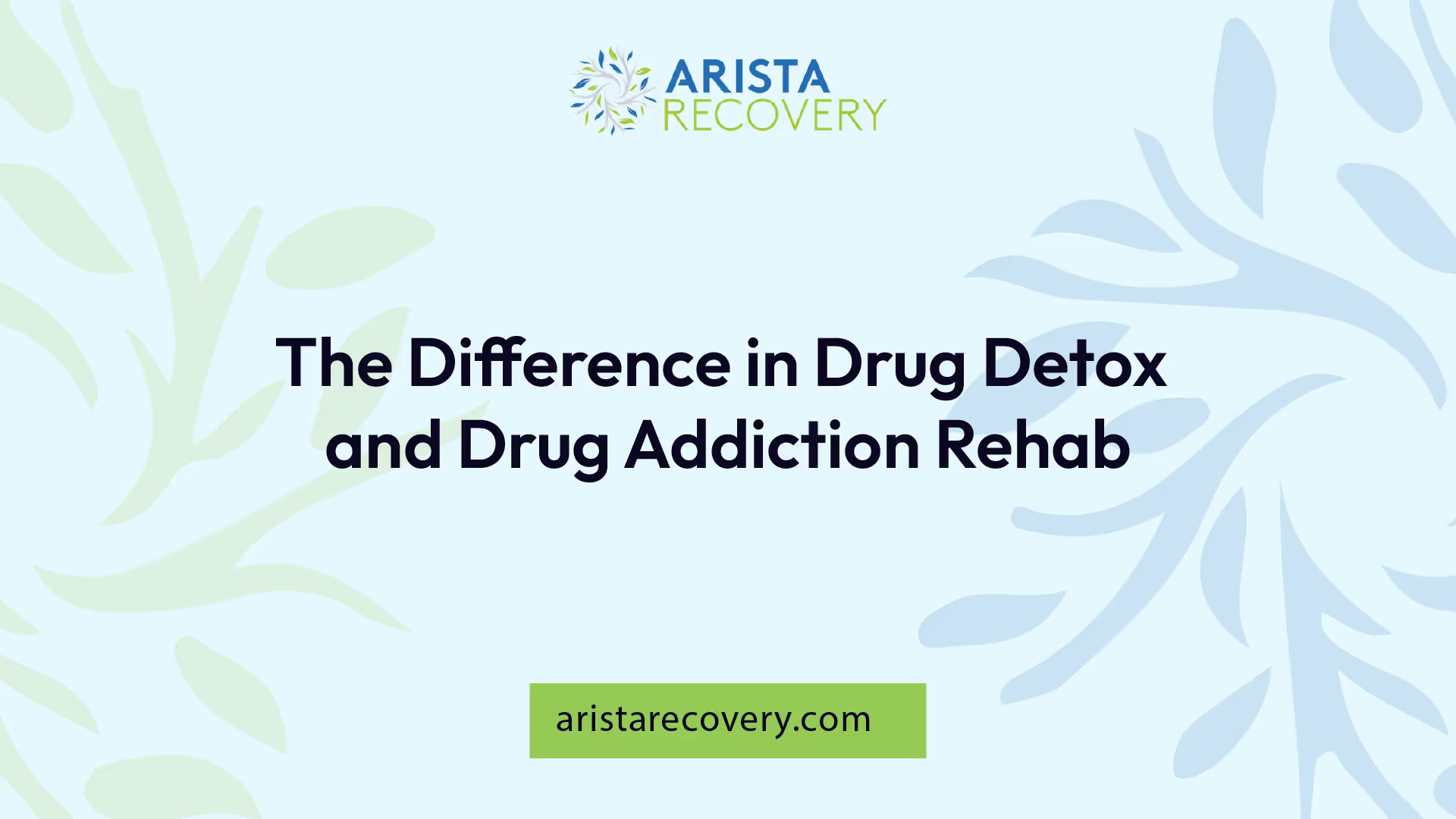
Understanding Detox
Definition and Purpose
Drug detox is a structured process designed to help individuals safely eliminate harmful substances from their bodies. This process is essential for enabling the body to adapt to functioning without the presence of drugs, marking a crucial step in the recovery journey. Detoxification allows individuals to begin their path towards sobriety and provides a foundation for further treatment options, such as rehabilitation programs.
Purpose of DetoxDescriptionEliminate Harmful SubstancesRemove drugs or alcohol from the system.Manage Withdrawal SymptomsAddress and alleviate symptoms that arise during detox.Prepare for RehabSet the stage for effective long-term treatment and recovery.

Importance of Medical Supervision
The detox process can result in withdrawal symptoms that may vary in severity and duration depending on the substance involved. Professional medical supervision is crucial during this time to monitor and manage these symptoms effectively. Without proper oversight, individuals face increased risks of relapse, which can endanger their health and safety.
Risks of Unsupervised DetoxImpactSevere Withdrawal SymptomsPotentially life-threatening conditions requiring immediate care.Increased Risk of RelapseUnmanaged cravings leading to substance use reinstatement.ComplicationsHealth issues due to improper management of drug withdrawal.
Medical professionals provide essential support, monitor vital signs, and offer medications that can mitigate discomfort, ensuring a safer and more manageable detox experience.
Detoxification Process
The detoxification process is a critical stage in addressing drug addiction, where the body works to clear itself of harmful substances. This process is often accompanied by various withdrawal symptoms and can present several risks and complications that require careful management.
Withdrawal Symptoms
Withdrawal symptoms manifest when an individual reduces or stops using substances they have become dependent on. These symptoms can vary significantly based on the drug involved, the duration of use, and the individual's overall health. Some common withdrawal symptoms include:
SubstanceCommon Withdrawal SymptomsAlcoholAnxiety, tremors, seizures, nauseaOpioidsMuscle aches, insomnia, diarrhea, vomitingBenzodiazepinesAnxiety, seizures, tremors, insomnia
According to NCBI Bookshelf, drug detox primarily focuses on managing withdrawal symptoms. Medications may be used to alleviate these symptoms; for instance, benzodiazepines are often prescribed for alcohol withdrawal, while methadone may be used for opioid withdrawal. This approach aims to ease the withdrawal experience and support a gradual tapering process until physiological stability is restored.
Risks and Complications
While detox is a necessary step toward recovery, it is not without its risks and complications. The withdrawal process can potentially lead to severe health issues, particularly when not conducted in a supervised setting. Key risks include:
Detox programs emphasize medical supervision, as noted by Turnbridge. Professional settings facilitate 24/7 medical management to address acute withdrawal symptoms and mitigate dangerous effects. Detox can vary in length depending on the substance involved, lasting from several days to several months, and requires tailored approaches best provided by experienced medical professionals.
In conclusion, understanding the detoxification process, its withdrawal symptoms, and the potential risks and complications is crucial for individuals seeking to overcome addiction. Proper management and medical supervision are essential to navigate this challenging phase safely.
Drug Detox vs. Drug Rehab
Understanding the distinction between drug detox and drug rehabilitation is essential for individuals facing substance use disorders. Both processes play crucial roles in recovery but serve different purposes.
Differentiating Detox and Rehab
Drug detox, also known as detoxification, is primarily focused on clearing the body of harmful substances. The process is designed to help individuals safely withdraw from drugs or alcohol and manage associated withdrawal symptoms. Drug detox is often the first step in treating substance use disorders and can be the difference between life and death.
In contrast, drug rehab is a comprehensive treatment program that addresses the psychological, emotional, and social aspects of addiction. Rehabilitation aims to help individuals develop coping strategies, change behaviors, and build a supportive environment to sustain recovery. While detox focuses on physical dependence, rehab addresses the underlying issues contributing to addiction.
AspectDrug DetoxDrug RehabFocusClearing substances from the bodyTreating psychological and emotional issuesDurationVaries from several days to several monthsTypically lasts from weeks to monthsGoalManaging withdrawal symptoms and ensuring safetyPromoting long-term recovery and lifestyle changesSupervisionOften requires medical supervisionMay be provided in various settings, including inpatient and outpatient
Goals of Each
The goals of drug detox and drug rehab differ significantly.
Both drug detox and drug rehab are critical components of the recovery journey, and understanding the difference between them can guide individuals toward effective treatment options. A structured detox process is essential to ensure safety while transitioning to the rehabilitative phase, which focuses on long-term recovery.
Medical Detox vs. Abrupt Quitting
Understanding the differences between supervised medical detox and abrupt quitting is crucial for anyone dealing with drug addiction. This section will cover the importance of supervised detox and the risks associated with quitting suddenly.
Importance of Supervised Detox
Supervised detoxification is an essential process for individuals experiencing withdrawal from drugs. During medical detox, healthcare professionals monitor the individual’s vital signs and manage withdrawal symptoms using medications. This careful management helps to mitigate the discomfort of withdrawal, which can be severe and sometimes dangerous.
Detoxification alone does not address the underlying psychological and behavioral issues associated with addiction. Therefore, it is vital for detox to be followed by a formal assessment and referral to comprehensive drug addiction treatment. Many individuals who complete withdrawal management without subsequent treatment tend to relapse, as withdrawal management is only an initial step prior to more intensive psychosocial treatment.
AspectSupervised DetoxAbrupt QuittingMedical SupervisionYesNoMedication AssistanceYesNoMonitoring Withdrawal SymptomsYesNoFollow-up TreatmentYesRarely
Risks of Abrupt Quitting
Quitting drugs suddenly, also known as abrupt quitting, poses significant risks. Without the guidance of a medical team, withdrawal symptoms can become overwhelming and may even lead to serious health complications. Some of these complications can include seizures, significant psychological distress, and even life-threatening conditions, depending on the substance being detoxified from [6].
Individuals who attempt to quit abruptly may not have access to the necessary support to manage withdrawal symptoms effectively. As a result, they face a higher risk of relapse. Statistics suggest that many individuals who undergo rapid or ultra-rapid detox do not continue with further treatment, which leads to a higher likelihood of returning to substance use.
Risk FactorAbrupt QuittingHealth ComplicationsHighRelapse RateHigherSupport AvailabilityLowManagement of SymptomsPoor
Opting for a medically supervised detox process is essential for effectively managing withdrawal symptoms and preparing individuals for ongoing treatment in their recovery journey. Understanding the risks associated with abrupt quitting can help inform better choices for those seeking to overcome addiction.
Drug Detox Methods
Understanding the various methods of drug detoxification is essential for individuals seeking recovery from addiction. Two common aspects of drug detox include medically assisted detox and the duration along with factors influencing the process.
Medically Assisted Detox
Medically assisted drug detox is widely regarded as a safer and more effective option compared to quitting drugs abruptly. This method involves medical supervision and interventions to manage withdrawal symptoms that can arise during detoxification. Such symptoms may include nausea, anxiety, sweating, insomnia, and cravings. By providing medical support, the risks associated with detoxification can be significantly reduced, increasing the likelihood of success during this critical phase of recovery.
The importance of medical supervision is particularly highlighted for individuals with severe dependencies. Health professionals can monitor vital signs, administer necessary medications, and provide psychological support, ensuring a more manageable detox process. The structured environment allows for safer removal of harmful substances from the body, enabling the individual to adapt to functioning without drugs.
Duration and Factors Influencing Detox
The duration of drug detox is not one-size-fits-all and varies based on several factors, including the type of substance abused, the individual's history of use, and overall health. The initial acute phase of detox generally lasts around a week for many substances, but the complete detox process can last from several days to several weeks, or even months in some cases [2].
FactorImpact on Detox DurationType of SubstanceVaries; e.g., alcohol, opioids, benzodiazepines can lead to more severe withdrawal symptoms, extending the detox periodIndividual's History of UseLonger use and higher dosages may result in prolonged detoxOverall HealthPre-existing health conditions can complicate detox and require adjusted timelines
Specific considerations are essential, especially since withdrawal from certain substances like alcohol, opioids, and benzodiazepines can lead to severe symptoms such as rapid heart rate, tremors, and seizures. Therefore, a tailored approach combining medical expertise and individual assessment is crucial for effective detoxification.
Detox during Pregnancy
Risks and Considerations
Detoxification during pregnancy poses significant risks to both the mother and the developing fetus. Pregnant women who struggle with drug addiction often have a strong motive to quit due to the potential harm associated with substance use. However, the method and timing of detoxification are crucial. Abruptly stopping drug use, also known as going "cold turkey," can induce stress not only for the mother but also for the fetus. This can lead to serious complications such as preterm labor and severe fetal distress Addiction Center.
Risk FactorPotential OutcomeAbrupt DetoxPreterm laborAbrupt DetoxSevere fetal distressOngoing Substance UseLow birth weightOngoing Substance UseNeonatal withdrawal syndrome
Importance of Medical Supervision
Medical supervision during the detoxification process is essential for pregnant women. A supervised detox helps in managing withdrawal symptoms safely and effectively. Healthcare professionals can monitor both the mother and the fetus for any signs of distress and adjust the detox process as necessary. This approach aims to minimize risks while addressing the mother’s addiction in a controlled and safe environment.
Benefit of Medical SupervisionDescriptionMonitoringContinuous observation of mother and fetus's healthCustomized CareTailored detox plans to mitigate withdrawal effectsSupportAccess to medical professionals for emotional supportSafetyImmediate intervention in case of complications
In summary, detoxification during pregnancy must be approached with caution. A well-monitored, medically supervised detox can help ensure the health and safety of both mother and child, providing a better outcome than abrupt quitting.
References
[2]:
[3]:
[4]:
[5]:
[6]:
[7]:
When mental health challenges and addiction intersect, it can feel isolating. At Arista, we offer compassionate, evidence-based, and trauma-informed care to help you heal, grow, and move forward.
The Difference in Drug Detox and Drug Addiction Rehab
You’re not alone in this.
When mental health challenges and addiction intersect, it can feel isolating. At Arista, we offer compassionate, evidence-based, and trauma-informed care to help you heal, grow, and move forward.
Support that moves with you.
You’ve taken a brave first step. At Arista Recovery, we’re here to help you continue with best-in-class care designed for long-term healing and support.
.webp)






